For someone like me who studied Sam so intently, if a lump could form in the throat during the emotive scenes, I think the cast did a superb job, notes Lieutenant General Syed Ata Hasnain (retd).
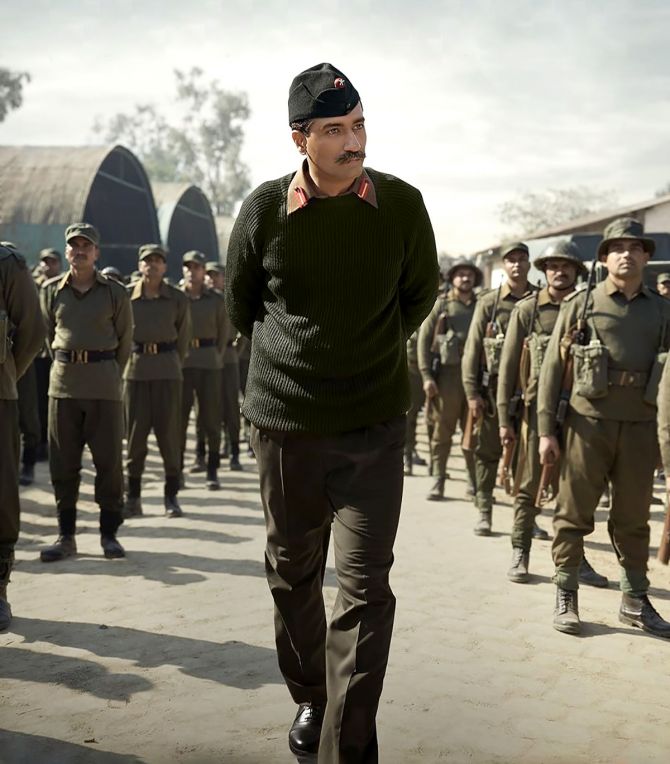
I went sceptically to watch Meghna Gulzar's biopic on Field Marshal S H F J Manekshaw (affectionately called Sam by everyone); that is because I had thought no one could adequately research his magnetic personality, translate it into a screen depiction and have an actor play his larger than life persona, it was just not possible.
However, compliments to Meghna, she has done all that, with Vicky Kaushal outdoing himself to play one of India's most charismatic figures. That is the sum total, but I have a lot to pick on, praise or even criticise, all in a constructive mode of course.
My observations are a cheater's version because not only do I belong to Sam's alma mater, Sherwood College Nainital (spaced 38 years apart) but also because being a second generation soldier my family has had frequent contact with the Manekshaw family (essentially Sam and Siloo).
The opening scenes of the film clearly establish Sam's love for the troops and why he was called Sam Bahadur. The scene with the young Gorkha soldier who on being asked first hesitated to call his superior by the name given by his regiment but then blurted out 'Sam Bahadur' almost in a stammer, has been brilliantly done. It sets the tone for the hundreds of very famous anecdotes about him, of which only some could be captured. Meghna has used some existing photographs of his life and times and duplicated them into well captured and fairly realistic scenes
Most people know about Sam's great exploits in the 1971 India-Pakistan conflict, but few would be aware of what happened just before the India-China border war of 1962. It is shown quite transparently by Meghna, without holding back much.
Sam had fallen on the wrong side of Lieutenant General B M Kaul, the chief of the general staff, the favourite of then prime minister Jawaharlal Nehru, primarily because Sam felt that he was not sufficiently battle tested to assume the kind of responsibilities Nehru was doling out to him.
He also had a run in with Kaul in an earlier appointment when he refused to provide manpower for the construction efforts of some troops accommodation on grounds that the troops needed to train for war and not construction which should be done by contractors
Between V K Krishna Menon, Nehru's defence minister and Kaul, every effort was made to collect evidence against Sam so that an inquiry could nail him on charges of being anti-national. Those were tense days for the Manekshaw family. It could have been the end of his career.
I heard snippets of discussion between my parents while we were at Wellington. They knew Sam for long and rued the thought of such ridiculous insinuations against him. Krishna Menon was a pain for the Army and gladly has been shown as such in the film.
Sam was exonerated and immediately promoted and handed charge of 4 Corps at Tezpur. I am not sure if it is correct that he made his famous statement -- 'There were be no withdrawal without my written orders and those orders will never be issued', in front of troops. More likely he gave that in a talk to the officers and followed it up by stating it again in some Sainik Sammelans.
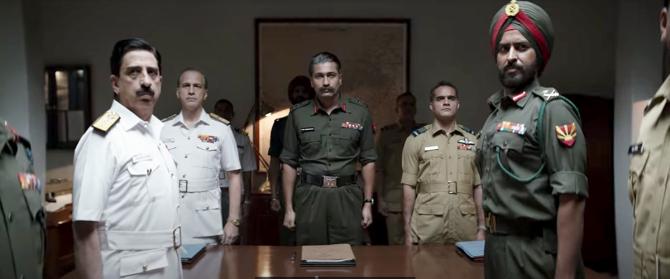
You have to grant it to Meghna's research team and those sourcing military hardware for the film. I am aware it was assisted by the Army but even the Army has got very little time to hunt for the right equipment at the right place, within its own inventories of museums and heritage pieces. Although anything today can be reproduced by artificial intelligence and digital reconstruction the military equipment shown throughout the film appears genuine and related to the time.
The jeeps in which Sam rides are all of the Willys variety. I can see Dodge Power Wagons but no Ford trucks especially the 15 cwt (pronounced hundredweight) variety, the precursor to the One Ton. Even the registered numbers of the vehicles were as per the numbers of those times.
The attention to detail is overwhelming. Unlike most Bollywood starrers where regimental accoutrements and medal ribands are not sufficiently detailed, this film does full justice, ensuring that ribbons of the period concerned are worn and not randomly of any period which comes to the producer's mind.
Unlike some other biopics, scenes relating to particular periods have not been shot just anywhere convenient. The entire period of Sam's tenure as Commandant Defence Services Staff College Wellington is shot right there at the College and the Flagstaff House.
I remember those days Sam was a great one for jam sessions after the weekly film in Sardar Patel, the auditorium of those days. The film shows him stepping on Siloo's toes in their first dance together before their wedding. He later developed the grace to be a great dancer, the twinkle in his eye always ready for a moment of humour.
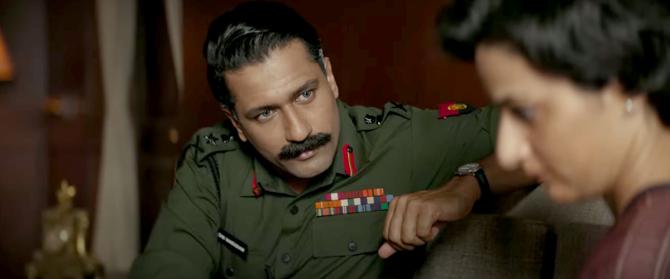
The storyline attempts to capture a bit of everything, from 1932 when he was at the Indian Military Academy right till his appointment as a Field Marshal and his brief 'tiff' with then prime minister Indira Gandhi over his humorous statements being misquoted by the media. It almost reminds one of a similar charismatic American General, George S Patton who was invariably misquoted by the media.
The 1947-1948 operations in Jammu and Kashmir are briefly covered to reveal Sam's role as a staff officer in the Military Operations Directorate and his invaluable contribution. The Fifties and mid Sixties are given a miss except for the Mizoram operations in 1966-1967. In the bargain an important event which is partially subscribed to him goes missing; that is the Nathula incident in August-September 1967.
Although associated with the direct leadership of Lieutenant General Sagat Singh, then GOC 17 Mountain Division, Nathula is famous for the bloody nose given to the Chinese People's Liberation Army on orders of Sagat who had been asked to withdraw from Nathula. Sagat would have taken the senior Gorkha General's permission before executing any of his actions.
That Nathula helped Sam's career never seemed in doubt. Sagat's reputation of being headstrong did not help him in his subsequent career, although he was reputed to be one of the most tactically brilliant Generals.
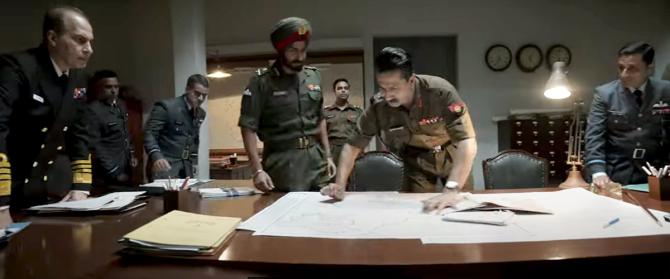
Coming to the 1971 saga. All that is known about Sam pushing the case for delay in dates for operations to begin is covered quite extensively with no blemishes. It is the character of Indira Gandhi that falters with Sana Fatima Sheikh playing the role. She is not bad at all. It's just that the direction regarding her character may have gone wrong.
Mrs Gandhi could be fearsome if required and wasn't so demure and submissive on issues of national security. It's another thing that Sam was a charmer and could get his way, but that too with Mrs Gandhi it was just about.
Someone who has read nothing about Sam may go away perceiving that he was flirtatious with women and cared little about their dignity and his reputation. In reality he was a charmer and knew his limits and how to maintain them.
Everything he did had a sense of finesse and dignity. It was his professionalism which dictated his relationships, even the relationship with Indira Gandhi who somehow went from trusting him completely to disliking him intensely.
Among the women portrayed is Siloo, Sam's wonderful wife. I am sure Meghna Gulzar would have consulted the Manekshaw family about the portrayal. Sanya Malhotra, I thought, did rather well in the earlier scenes. Her portrayal of the young Siloo was superb. As the story moved to Wellington and the allegations against Sam began I thought this could have been handled even more sensitively than it was.
I received a prize from Siloo in Class 5 and can remember her in a sari in every formal function, mostly tied the traditional Parsi way. Perhaps she wore trousers too, but I cannot recall. She very often chided Sam for his sense of humour which actually was his strongest point.
He could deflate tension with ease, that if he created tension at all. Yet behind all this light heartedness lay one of the sharpest minds always in empathy with his command.
An important part of Sam's early years was his education in Sherwood College Nainital. He made some stirring speeches at the School Centenary in 1969. Meghna Gulzar's research did not take her that far. The school fraternity knew him well and could have helped with some fresh and better anecdotes; the ones included were mostly too well known but that is not the director's fault
Meghna takes the cake for detail. Rarely have I seen this in an Army related biopic. I expected the ceremonial guard to follow the drill of presenting arms the way it is done today, but was pleasantly surprised that the drill of the sixties was followed.
This can be unending but it cannot just end without a more holistic analysis of our hero, Vicky Kaushal. On the negative side, he was too tall for Sam and the slouch was too marked. The walk did not come right either, but Vicky lived the role completely and managed a wonderful glint in the eye. He may not have articulated in the clipped accent that Sam had, but Vicky conveyed Sam's energy just too well.
Last of all, for someone like me who studied Sam so intently, if a lump could form in the throat during the emotive scenes, I think the cast did a superb job. As far as Meghna Gulzar is concerned, she seems to have eschewed all temptation to take any cinematic liberty for the sake of selling the film.
This is one of the most honest films that Bollywood has ever produced.
In the typical Staff College Wellington style, I find that the film was entertaining, balanced in emotion, with superb detailing. I have never been niggardly about assessment so Sam Bahadur gets an Above Average rating from me which on another scale would be 3.5 stars.



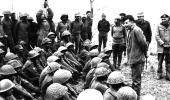








 © 2025
© 2025